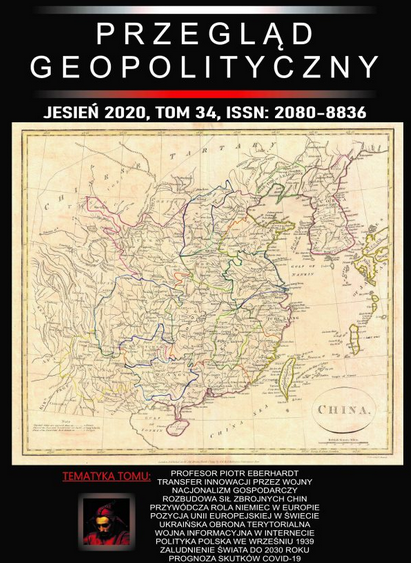PRZYWÓDZTWO NIEMIEC W UNII EUROPEJSKIEJ W ŚWIETLE TEORII RÓL SPOŁECZNYCH ORAZ WYBRANYCH DZIAŁAŃ MINILATERALNYCH
THE LEADERSHIP OF GERMANY IN THE EUROPEAN UNION IN THE LIGHT OF SOCIAL ROLES THEORY AND SELECTED MINILATERAL ACTIONS
Author(s): Sylwia ZawadzkaSubject(s): Economic policy, Government/Political systems, International relations/trade, Political behavior, EU-Approach / EU-Accession / EU-Development
Published by: Polskie Towarzystwo Geopolityczne
Keywords: leadership; cooperative leadership; international roles; minilateralism; Germany;
Summary/Abstract: The concept of leadership in international relations studies is often defined in terms of hegemony, domination and superpower. This article presents a different concept of cooperative leadership, basing it on the interactive approach of the social role theory. Adopted understanding of leadership assumes that a given country, while playing the role of a leader, bases its actions on cooperation with a group of other countries, and at the same time directs their behavior to achieve specific goals for a specified period of time. The adopted theoretical framework allowed for a detailed analysis of the problem of Germany's leadership in the European Union, especially in the field of diplomatic activities within the framework of the initiated mini-lateral formats. The aim of the article was to define the main determinants of the role of Germany as the EU leader, which bases its presidency on close minilateral cooperation with individual member states. Minilateralism was defined in 2009 by Moisés Naím. The author defined this form of cooperation as the smallest possible number of countries, thanks to which one can gain the greatest possible influence on solving a given problem. The article presents minilateralism as a tool for legitimizing leadership. Using the comparative method and a case study in the research, the main assumptions were verified, and it was confirmed that the measure of Germany's cooperative leadership is the ability to participate in coalitions and the perception of this country as an attractive coalition partner. In all the indicated mini-lateral formats (CSDP projects as part of the alliance with France; Weimar Triangle; Channel Group; E3 + 3 format), attention was focused, among others, on shaping the leadership role of Germany.
Journal: Przegląd Geopolityczny
- Issue Year: 2020
- Issue No: 34
- Page Range: 80-102
- Page Count: 23
- Language: Polish

